Key Takeaways
- Zero-knowledge proof (ZKP) enhances data security in Web3 by allowing information verification without revealing the actual data.
- Platforms like Binance, Kraken, and Bybit use ZKP to protect user privacy and ensure secure transactions.
- Despite its complexity, zero-knowledge proof is crucial for building a secure and scalable decentralized ecosystem.
Stop overpaying - start transferring money with Ogvio. Sign up, invite friends & grab Rewards now! 🎁
Have you ever wondered how your data stays secure in the vast, decentralized world of Web3? With the increasing use of blockchain and decentralized applications, the need for robust data security has never been more critical. This is where zero-knowledge proof (ZKP) comes into play. In this article, I’ll be diving into how zero-knowledge proof is revolutionizing data security in Web3, addressing the underlying question: how can we ensure our data remains private and secure in a decentralized environment?
We'll start by exploring what is zero-knowledge proof and its basic principles, making sure you have a solid understanding of the concept. We'll then look at the importance of data security in Web3, a space where traditional security measures often fall short. By examining how zero-knowledge proof enhances data security, you'll see why it's a game-changer for platforms like Binance, Kraken, and Bybit.
Next, we'll discuss real-world applications of zero-knowledge cryptography in various Web3 use cases, from DeFi to healthcare. We'll delve into the technical aspects of implementing ZKP, tackling the challenges and limitations that come with it. Finally, we'll take a peek into the future, exploring how zero-knowledge proof will continue to shape the security landscape of Web3.
By the end of this article, you'll have a comprehensive understanding of zero-knowledge proof and its pivotal role in safeguarding data in a decentralized world. Let's get started!

Did you know?
Subscribe - We publish new crypto explainer videos every week!
How to Learn Crypto The Easy Way? (Trending Beginners' Strategy)


Table of Contents
- 1. What is Zero-Knowledge Proof?
- 1.1. Understanding the Concept of ZKP
- 1.2. Basic Principles of ZKP
- 1.3. Types of Zero-Knowledge Proofs
- 1.4. Trusted Setup
- 1.5. Historical Context and Evolution of ZKP
- 1.6. Why Zero-Knowledge Proofs Matter
- 2. The Importance of Data Security in Web3
- 2.1. Defining Web3 and Its Key Characteristics
- 2.2. Why Data Security is Critical in Decentralized Systems
- 2.3. Current Data Security Challenges in Web3
- 3. The Role of Zero-Knowledge Proof in Enhancing Data Security
- 4. How Zero-Knowledge Proof Enhances Data Security
- 4.1. Enhancing Data Security with Zero-Knowledge Proof
- 4.2. Zero-Knowledge Proof VS Traditional Security Methods
- 5. Applications of Zero-Knowledge Proof in Web3
- 5.1. Decentralized Finance (DeFi)
- 5.2. Identity Verification
- 5.3. Supply Chain Management
- 5.4. Healthcare
- 5.5. Voting and Governance
- 6. Technical Implementation of Zero-Knowledge Proof
- 6.1. Cryptographic Algorithms in ZKP
- 6.2. Integration Into Web3 Frameworks
- 6.3. Practical Tips for Developers
- 7. Challenges and Limitations of Zero-Knowledge Proof
- 7.1. Computational Complexity
- 7.2. Scalability Issues
- 7.3. The Need for Trusted Setups
- 7.4. User and Developer Adoption
- 7.5. Ongoing Research and Solutions
- 8. Conclusion
What is Zero-Knowledge Proof?
To really grasp how ZKP is revolutionizing data security in Web3, it's essential to first understand what it is. In this section, I’ll break down the basics of ZKP, its types, and its evolution in a way that’s easy to digest.
Latest Deal Active Right Now:Understanding the Concept of ZKP
At its core, zero-knowledge proof is a cryptographic method that allows one party (the prover) to prove to another party (the verifier) that a statement is true, without revealing any additional information.
Imagine I need to prove to you that I know the password to a secure account, but I don’t want to actually tell you the password. With zero-knowledge proof, I can prove my knowledge without exposing the password itself. This is incredibly powerful for maintaining privacy and security.
Basic Principles of ZKP
The fundamental principles of zero-knowledge proofs are simple yet profound. They can be summarized in three main points:
- Completeness: if the statement is true, the honest prover can convince the honest verifier of this fact.
- Soundness: if the statement is false, no cheating prover can convince the honest verifier that it is true, except with some small probability.
- Zero-knowledge: if the statement is true, the verifier learns nothing other than the fact that the statement is true.

These principles ensure that zero-knowledge proofs are both reliable and secure, making them ideal for sensitive applications.
Types of Zero-Knowledge Proofs
There are several types of ZK proofs, with zk-SNARKs (Zero-Knowledge Succinct Non-Interactive Arguments of Knowledge) and zk-STARKs (Zero-Knowledge Scalable Transparent Arguments of Knowledge) being the most notable. Here are the brief descriptions and comparisons of both types.
- zk-SNARKs are known for their clarity and efficiency. They allow for very short proofs and quick verification times, making them suitable for applications where performance is critical. However, they often require a trusted setup phase, which can be a drawback.
- zk-STARKs, on the other hand, eliminate the need for a trusted setup. They are more scalable and transparent but tend to produce larger proofs, which can impact performance. Both types of ZK proofs have their own strengths and are chosen based on the specific requirements of the application.
Trusted Setup
But, what is a trusted setup? Basically, it refers to a crucial initial step where a set of cryptographic parameters are generated. To put it simply, imagine you're baking a special cake with a secret ingredient. This secret ingredient lets you prove the cake is delicious without revealing the recipe itself (like a zero-knowledge proof).
The problem is, before you can bake any cakes, you need a special starter dough. This starter dough is like the trusted setup in ZKPs. It's crucial for making the whole thing work. Here's the catch: making the starter dough requires a bit of trust. In Web3, multiple people (like bakers) might contribute secret things to the dough, then throw away their own recipes (secret information) after it's done.

The downside? If even one person doesn't destroy their secret recipe or doesn't follow it honestly, the whole batch of cakes (proofs) could be fake! This is why trusted setups can be a bit risky.

Did you know?
Subscribe - We publish new crypto explainer videos every week!
What Does Staking Mean in Crypto? (Easily Explained!)


Historical Context and Evolution of ZKP
The concept of zero-knowledge proof dates back to the 1980s, introduced by researchers Goldwasser, Micali, and Rackoff. Since then, it has evolved significantly, especially with the advent of blockchain technology. Zero-knowledge proof blockchain applications have brought ZKP into the spotlight, highlighting its potential to enhance security and privacy in decentralized systems.
In the early days, ZKP was mostly theoretical, but advancements in computational power and cryptographic techniques have made practical implementations possible. Today, zk proofs are used in various blockchain projects to enable private transactions and secure data sharing.
Why Zero-Knowledge Proofs Matter
So, why are zero-knowledge proofs so important in the context of Web3? As we move towards a decentralized internet, ensuring that data remains private and secure without compromising on transparency is a major challenge. Zero-knowledge proof provides a solution to this dilemma, allowing for the verification of information without revealing the information itself.
This capability is crucial for platforms like Binance, Kraken, and Bybit, which deal with sensitive user data and transactions. By implementing zero-knowledge proof, these platforms can enhance their security measures and build trust with their users.
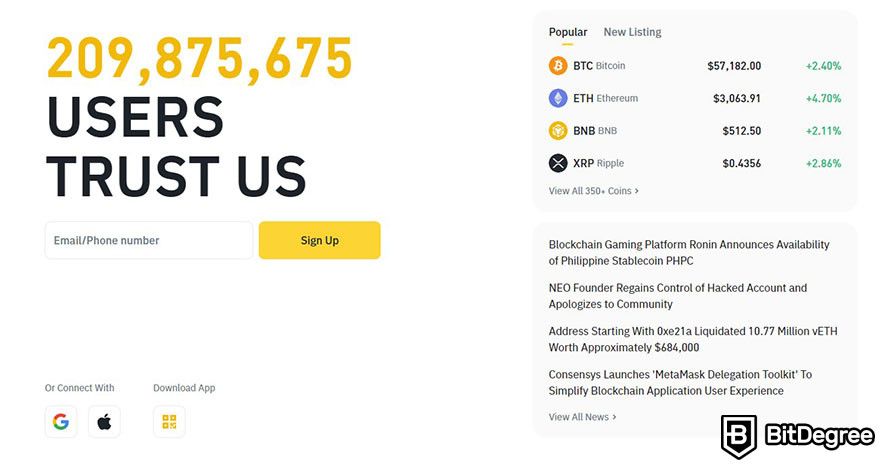
Understanding what is zero-knowledge proof and its underlying principles is key to appreciating its transformative impact on data security. As we delve deeper into its applications and benefits, you'll see how this cryptographic technique is set to revolutionize the way we think about privacy and security in the digital age.
The Importance of Data Security in Web3
As we dive deeper into the world of Web3, the importance of data security becomes increasingly evident. In this section, I’ll explain why data security is crucial in decentralized systems, highlight the current challenges, and discuss how zero-knowledge proof plays a vital role.
Defining Web3 and Its Key Characteristics
Web3, often referred to as the decentralized web, represents a new paradigm of internet architecture. Unlike the traditional web (Web2), which relies on centralized servers, Web3 operates on decentralized networks like blockchain. This shift aims to give users more control over their data and interactions online. But with great power comes great responsibility—securing this decentralized data is paramount.
Why Data Security is Critical in Decentralized Systems
In Web3, data is distributed across multiple nodes, rather than being stored in a single, centralized location. This decentralized nature offers numerous benefits, such as increased transparency, resistance to censorship, and improved user control. However, it also introduces new security challenges.

When data is spread across a network, ensuring its integrity and confidentiality becomes more complex. Sensitive data stored on the blockchain would be accessible to anyone, resulting in a lack of privacy[1]. Traditional security measures, which rely heavily on central control, often fall short in this new environment. This is where zero-knowledge proof blockchain applications become invaluable. By enabling secure verification without revealing underlying data, zero-knowledge proofs offer a robust solution to these challenges.
Current Data Security Challenges in Web3
There are several pressing data security issues in Web3 that need addressing:
- Data integrity: ensuring that data hasn’t been tampered with is crucial in a decentralized system. Since there is no central authority to validate data, robust mechanisms are needed to maintain its integrity.
- Privacy concerns: in a decentralized network, transactions and data exchanges are often public, raising concerns about user privacy. Without adequate protection, sensitive information could be exposed.

- Scalability: as Web3 applications grow, the need for scalable security solutions becomes critical. Traditional security methods may not be able to handle the increased load effectively.
- User trust: for Web3 to gain widespread adoption, users must trust that their data is secure. Any security breaches or vulnerabilities can severely undermine this trust.
Addressing these issues is vital for the success of Web3. If we can tackle privacy concerns, data integrity, scalability, and user trust effectively, we’ll create a secure and reliable decentralized ecosystem where everyone feels safe to participate. So, how does ZKP help us achieve this? I'll explore the roles and potential in the next section.
The Role of Zero-Knowledge Proof in Enhancing Data Security
Zero-knowledge proof, particularly in blockchain applications, addresses many of these challenges. By allowing data verification without revealing the data itself, ZKP enhances privacy and ensures data integrity.
For instance, in financial transactions on platforms like crypto exchanges, zero-knowledge proof can be used to verify whether the user has enough transaction amounts without leaking any private transaction data[2]. This not only maintains privacy but also adds an extra layer of security against potential fraud.
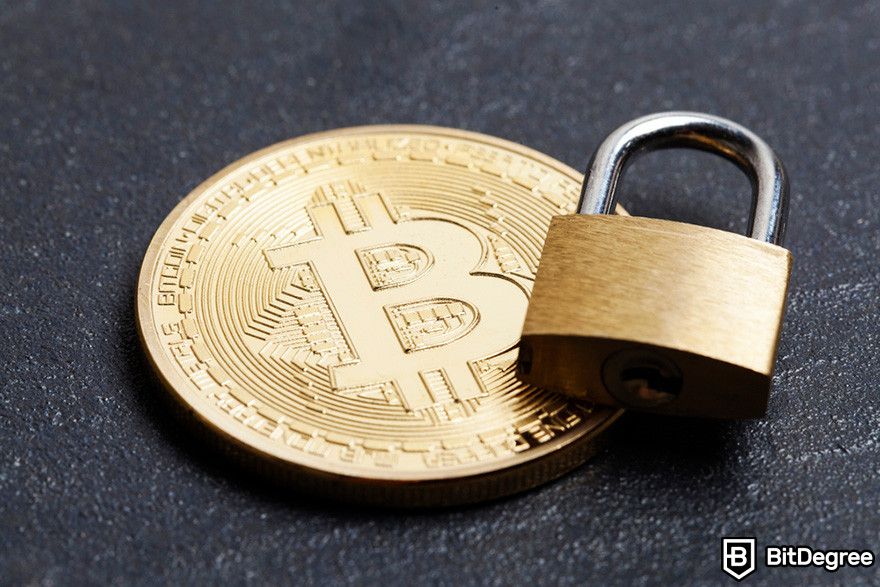
Zero-knowledge cryptography, a subset of cryptographic techniques that includes ZKP, further bolsters security by securely enabling complex data interactions. These cryptographic methods ensure that even as data moves through decentralized networks, it remains protected from unauthorized access and tampering.
The importance of data security in Web3 cannot be overstated. As we transition to a decentralized web, ensuring the privacy, integrity, and scalability of data is critical. Zero-knowledge proof blockchain solutions, leveraging advanced cryptographic techniques, provide a powerful means to address these challenges. By understanding and implementing these technologies, we can build a more secure and trustworthy Web3 ecosystem.
How Zero-Knowledge Proof Enhances Data Security
Alright, now that we've covered the importance of data security in Web3, let’s explore how ZKP plays a pivotal role in enhancing it. In this section, I'll explain the specific ways ZKP improves data security, compare it with traditional methods, and provide real-world examples of its application.
Enhancing Data Security with Zero-Knowledge Proof
So, how exactly does zero-knowledge proof enhance data security? As I mentioned earlier, ZKP enables the verification of information without revealing the information itself. This might sound a bit abstract, so let's break it down.
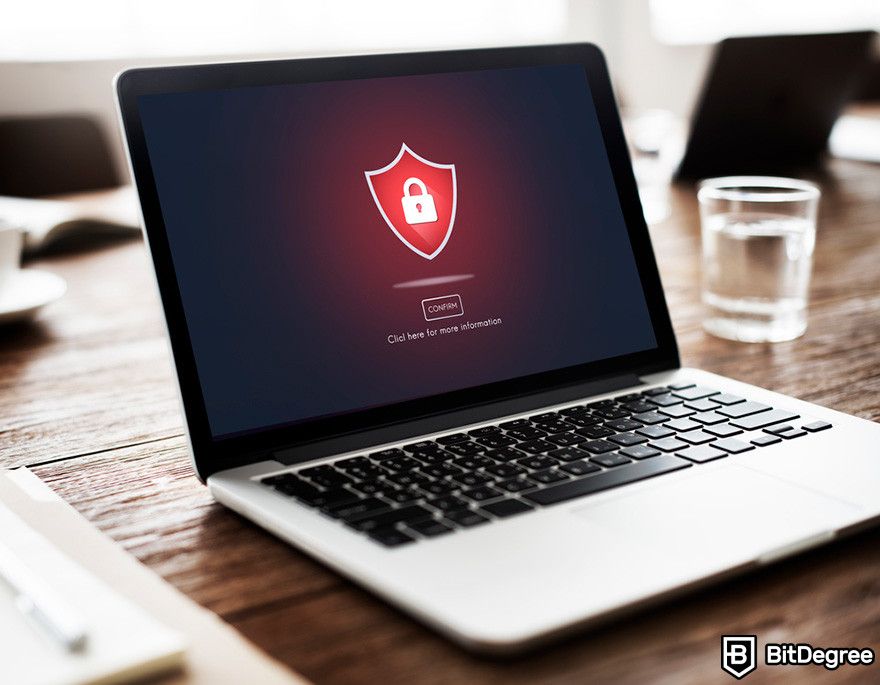
Imagine you need to prove that you have enough funds to complete a transaction on a platform like Binance, but you don't want to reveal your entire balance. With zero-knowledge proof, you can prove that you have sufficient funds without disclosing the exact amount. This ensures your privacy while still providing the necessary verification. This principle extends to various aspects of data security in Web3:
- Privacy preservation: zero-knowledge proofs allow users to maintain their privacy by proving the validity of information without exposing the underlying data. This is crucial in a decentralized network where transactions are often public.
- Data integrity: by using ZKP, you can ensure that data has not been tampered with. Since zk proofs require complex cryptographic validations, any attempt to alter the data would invalidate the proof.
- Secure authentication: ZKP can be used for secure authentication processes. For example, proving you have the correct password without actually sharing it.
Zero-Knowledge Proof VS Traditional Security Methods
To get an even better understanding, let’s compare zero-knowledge proof with traditional security methods. Traditional methods often rely on central authorities or intermediaries to validate and secure data. While this can be effective, it introduces points of vulnerability and requires trust in third parties.
Zero-knowledge proof blockchain solutions, on the other hand, eliminate the need for intermediaries by enabling direct, secure verification between parties. This not only reduces potential vulnerabilities but also aligns with the decentralized ethos of Web3.
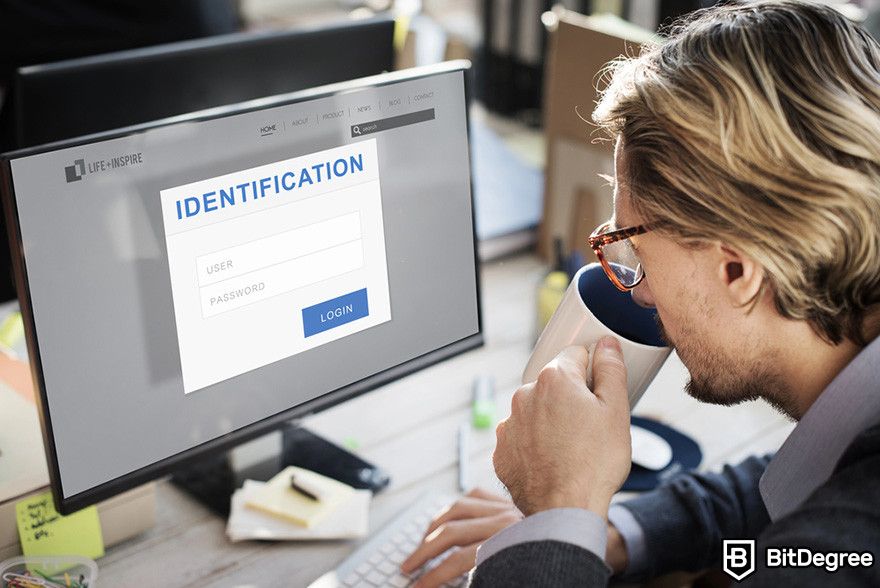
Additionally, traditional security methods may not scale well with the growing demands of Web3 applications. They can become bottlenecks, limiting the performance and scalability of the network. Zero-knowledge cryptography, including zk proofs, offers a more scalable solution by allowing efficient and secure verification processes.
Applications of Zero-Knowledge Proof in Web3
Alright, let’s dive into the exciting world of zero-knowledge proof applications in Web3. This section will explore how ZKP is being utilized across various domains, from decentralized finance to healthcare. These real-world applications highlight the versatility and power of zero-knowledge proof blockchain solutions.
Decentralized Finance (DeFi)
You might be wondering, how is zero-knowledge proof transforming DeFi? Well, DeFi platforms rely heavily on transparency and trust. However, this transparency can sometimes compromise user privacy. Enter zero-knowledge proof.
- Private transactions: one of the most compelling applications of ZKP in DeFi is enabling private transactions. This means you can maintain privacy without sacrificing the benefits of a decentralized financial system. However, there's always the issue of potential abuse of this feature that needs to be tackled.

- Secure lending and borrowing: in lending and borrowing protocols, ZKP allows users to prove their creditworthiness without revealing sensitive financial details. This enhances privacy and reduces the risk of identity theft.
Identity Verification
Identity is a big deal in the Web3 world, and zero-knowledge proof is making it more secure and private.
- Decentralized identity solutions: using zero-knowledge cryptography, decentralized identity platforms allow users to verify their identity without exposing personal information. For example, during KYC processes on exchanges like Kraken and Bybit, ZKP can verify that you meet the necessary criteria without sharing your actual documents.
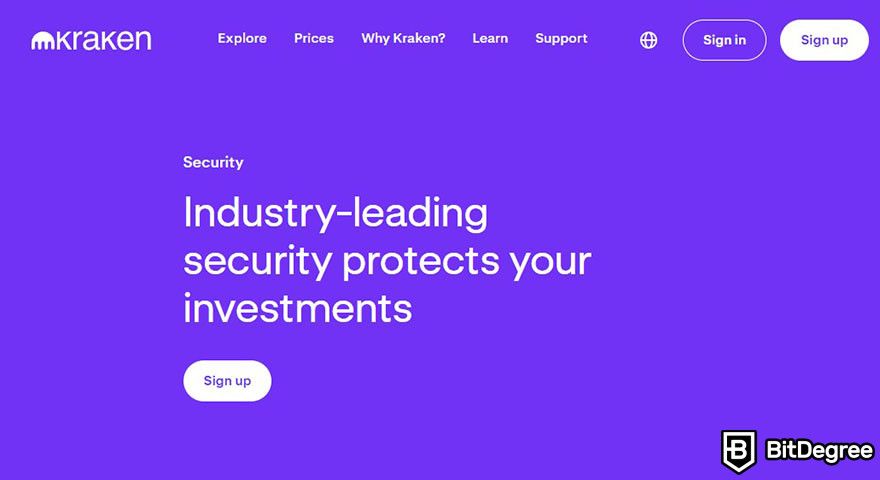
- Access control: in decentralized applications, ZKP can be used for secure access control. Users can prove they have the right credentials to access a service or resource without revealing their identity or the credentials themselves.
Supply Chain Management
You might not immediately think of supply chains when considering zero-knowledge proof, but ZKP is making a significant impact here too.
- Data integrity and authenticity: zero-knowledge proof blockchain solutions ensure the integrity and authenticity of data across the supply chain. For instance, verifying the origin of products without revealing proprietary information about suppliers is a game-changer for industries requiring strict compliance and transparency.

- Confidentiality: ZKP allows companies to keep sensitive business information confidential while still participating in a transparent and decentralized network. This balance is crucial for maintaining competitive advantages while embracing blockchain technology.
Healthcare
Healthcare is another area where zero-knowledge proof is making waves. Data privacy is critical here, and ZKP provides innovative solutions.
- Patient data privacy: zero-knowledge cryptography can ensure patient data privacy. For example, patients can prove their eligibility for certain medical services or trials without revealing their entire medical history. This protects patient privacy while enabling efficient and accurate service provision.

- Secure data sharing: healthcare providers can share patient data securely using zk proofs. This ensures that only authorized parties access the data, and even then, they only access the necessary information without exposing the entire dataset.
Voting and Governance
So, how about voting and governance in Web3? Zero-knowledge proof is making voting processes more secure and private.
- Anonymous voting: in decentralized governance, zero-knowledge proof allows for anonymous voting. Users can prove they have the right to vote without revealing their identity or how they voted. This ensures fair and transparent governance while maintaining voter privacy.

- Secure ballot counting: ZKP can also be used to securely count votes. This ensures the integrity of the voting process, as the results can be verified without exposing individual votes.
The applications of zero-knowledge proof in Web3 are vast and varied. From DeFi and identity verification to supply chain management, healthcare, and voting, ZKP is revolutionizing how we think about privacy and security in decentralized systems. By leveraging zero-knowledge proof blockchain solutions, we can create a more secure and trustworthy Web3 ecosystem.
Technical Implementation of Zero-Knowledge Proof
In this section, I’ll get into the nuts and bolts of how zero-knowledge proof is implemented. This section will cover the cryptographic algorithms involved, the integration of ZKP into existing Web3 frameworks, and some practical tips for developers.
Cryptographic Algorithms in ZKP
At the heart of ZKP are sophisticated cryptographic algorithms that make it all possible. Let's take a look at some of them:
- zk-SNARKs and zk-STARKs: as I mentioned earlier, zk-SNARKs and zk-STARKs are two popular types of zk proofs. zk-SNARKs are known for their efficiency and succinctness, while zk-STARKs offer scalability and transparency without the need for a trusted setup.
- Homomorphic encryption: this type of encryption allows computations to be performed on encrypted data without decrypting it first. It’s a key component of zero-knowledge cryptography, enabling secure data processing in a privacy-preserving manner.

- Hash functions: cryptographic hash functions are used to create unique, fixed-size representations of data. They play a crucial role in ensuring data integrity and are often used in generating zk proofs.
- Elliptic Curve Cryptography (ECC): ECC is used in many ZKP systems due to its efficiency and security. It helps in creating small, secure keys that are crucial for zero-knowledge proof blockchain applications.
Integration Into Web3 Frameworks
Alright, let’s talk about how ZKP can be integrated into existing Web3 frameworks. This is where theory meets practice.
- Layer-2 solutions: Layer-2 solutions, such as rollups, leverage zero-knowledge proofs to increase the scalability of blockchain networks. By processing transactions off-chain and then submitting a proof to the main chain, these solutions can significantly reduce congestion and improve efficiency.
- Smart contracts: zero-knowledge proofs can be embedded into smart contracts to enhance their security and privacy. For example, developers can use zk-SNARKs to create private transactions on platforms like Ethereum. This involves writing zk-SNARK-compatible smart contracts that can verify proofs without revealing the underlying data.

- Decentralized applications (dApps): dApp developers can integrate ZKP to enhance user privacy and security. For instance, a decentralized voting application might use ZKP to ensure that votes are cast anonymously and counted accurately without exposing individual voter preferences.
Practical Tips for Developers
If you’re a developer looking to implement zero-knowledge proof, I have some practical tips to get you started:
- Understand the cryptographic primitives: before diving into implementation, make sure you have a solid understanding of the underlying cryptographic primitives. This knowledge is crucial for debugging and optimizing your ZKP systems.
- Choose the right tool: there are several libraries and tools available for implementing ZKP. For zk-SNARKs, libraries like libsnark and ZoKrates are popular choices. For zk-STARKs, StarkWare offers robust solutions. Choose the tool that best fits your project’s requirements.
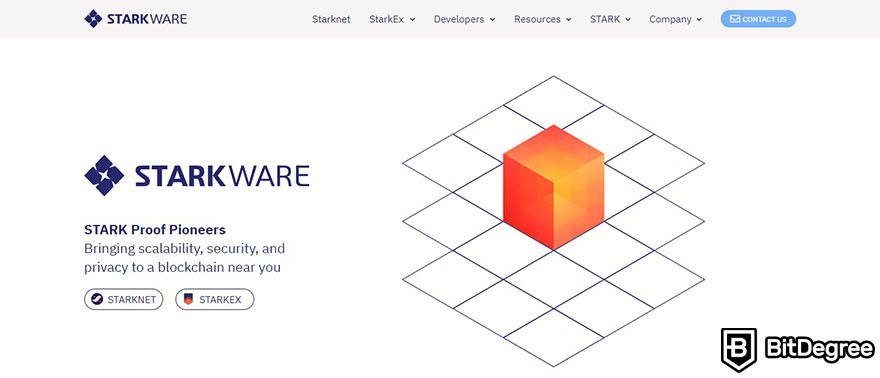
- Optimize for performance: ZKP can be computationally intensive, so it’s important to optimize your implementation for performance. This might involve using specialized hardware, parallel processing, or algorithmic optimizations.
- Stay updated with research: the field of zero-knowledge cryptography is rapidly evolving. Stay updated with the latest research and advancements to ensure your implementation is secure and efficient.
The technical implementation of zero-knowledge proof involves a combination of advanced cryptographic algorithms and practical coding skills. I know, this can be pretty technical and confusing, but understanding these concepts is crucial.
By mastering the underlying principles and using the right tools, developers can integrate ZKP into Web3 applications, significantly enhancing security and privacy. Whether through smart contracts, Layer-2 solutions, or dApps, zero-knowledge proof blockchain technology is essential for creating a more secure and scalable decentralized future.
Challenges and Limitations of Zero-Knowledge Proof
Now that we've looked closer at its nature and various benefits, let’s tackle the other side of the coin: the challenges and limitations of zero-knowledge proof. While ZKP offers impressive advantages for data security and privacy, it’s not without its hurdles. In this section, I’ll address the current challenges, potential limitations, and the ongoing research aimed at overcoming these obstacles.
Computational Complexity
So, one of the biggest challenges with zero-knowledge proof is its computational complexity. Generating and verifying zk proofs can be resource-intensive, requiring significant computational power and time. This can be a barrier for applications that need to process large volumes of transactions quickly.
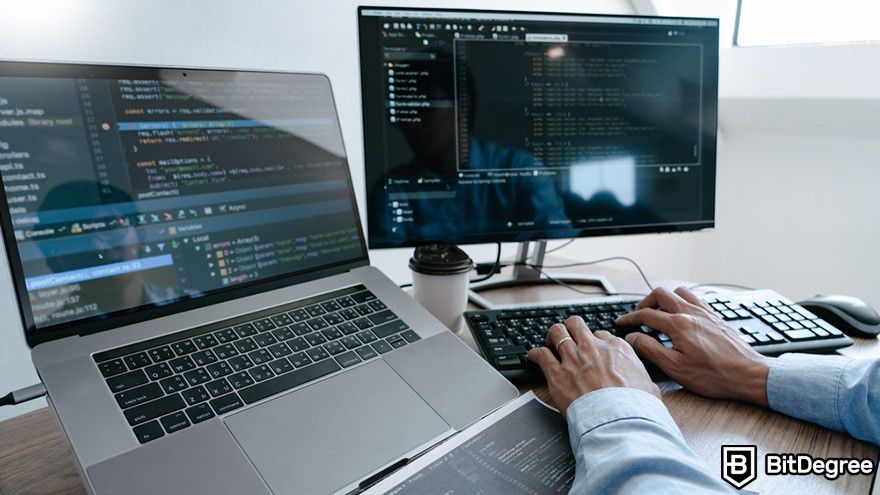
For instance, zk-SNARKs, while efficient in terms of proof size, require a complex setup and significant computational resources for both proof generation and verification. Similarly, zk-STARKs, though eliminating the need for a trusted setup, often produce larger proofs that can be more computationally demanding.
Scalability Issues
Scalability is another major concern. As zero-knowledge proof blockchain applications grow, the need for scalable solutions becomes more critical. Traditional ZKP implementations might struggle to keep up with the increasing load, potentially slowing down the entire system.
For example, integrating zero-knowledge proofs into a high-frequency trading platform or a large-scale DeFi application can lead to performance bottlenecks. The challenge lies in balancing security and privacy with the need for speed and efficiency.
The Need for Trusted Setups
As I mentioned earlier, many ZKP systems, particularly zk-SNARKs, require a trusted setup phase where initial parameters are generated. If these parameters are compromised, the security of the entire system can be jeopardized. This reliance on a trusted setup introduces a potential single point of failure, which contradicts the decentralized ethos of Web3. While zk-STARKs and other emerging ZKP technologies aim to address this issue, trusted setups remain a concern for many existing implementations.
User and Developer Adoption
Another challenge is user and developer adoption. Zero-knowledge cryptography can be complex and difficult to understand, which can hinder its adoption. Developers need specialized knowledge to implement ZKP effectively, and users might be hesitant to trust technologies they don’t fully understand. Educational initiatives and user-friendly tools are crucial to bridge this gap. As the technology matures, it’s essential to make ZKP more accessible to a broader audience.


- Secure and reliable
- Accepts fiat currencies
- Lots of trading options
- Reputable exchange
- Accepts fiat currencies
- Offers various trading options

- Huge trading variety
- Regulation-compliant around the globe
- Fair trading fees
- Beginner-friendly
- A wide array of features
- Vast number of different crypto coins & tokens

- Beginner-friendly
- Secure
- Decent trading and withdrawal fees
- Crypto.com Visa Card
- Automated tools & bots
- Ecosystem synergy with CRO
Ongoing Research and Solutions
Despite these challenges, there’s a lot of exciting research and development happening in the field of zero-knowledge proof. Researchers are continually working on new algorithms and techniques to address these limitations.
- Optimizing performance: efforts are being made to optimize the performance of zk proofs. This includes improving the efficiency of proof generation and verification, as well as exploring hardware acceleration techniques.
- Enhancing scalability: Layer-2 solutions and off-chain computation are being explored to enhance the scalability of zero-knowledge proof blockchain applications. These approaches aim to reduce the load on the main chain while maintaining security and privacy.

- Eliminating trusted setup: new ZKP technologies like zk-STARKs and bulletproofs are designed to eliminate the need for a trusted setup. This makes the system more secure and aligns better with the decentralized nature of Web3.
- Improving usability: there’s a growing focus on improving the usability of ZKP tools and frameworks. By making these tools more user-friendly, developers can more easily integrate zero-knowledge cryptography into their projects, and users can benefit from enhanced security without needing to understand the underlying complexity.
As you can see, zero-knowledge proof comes with its own set of challenges and limitations. However, ongoing research and innovative solutions are continuously pushing the boundaries, making zero-knowledge proof a critical technology for the future of secure and private decentralized systems.
Conclusion
Alright, let's wrap things up. In this article, I’ve taken you through the fascinating world of zero-knowledge proof, from understanding its basics to exploring its critical role in enhancing data security in Web3.
We’ve discussed how zero-knowledge proof enables privacy and security in decentralized systems, touching on its applications in DeFi, identity verification, supply chain management, and healthcare. Platforms like Binance, Kraken, and Bybit are already leveraging this technology to ensure user data remains secure and private.
I’ve also delved into the technical implementation of zero-knowledge proof blockchain solutions and acknowledged the challenges and limitations that come with it. While the complexity of zero-knowledge cryptography can be daunting, its benefits are undeniable. Zero-knowledge proof is truly revolutionizing data security in Web3, offering a way to verify information without compromising privacy. As we continue to push the boundaries of this technology, the future of secure, decentralized systems looks brighter than ever.
So, what’s next for you? If you’re a developer, consider exploring ZKP frameworks for your projects. If you’re an enthusiast, stay informed about the latest advancements in zero-knowledge proof. Together, we can build a more secure and private Web3 ecosystem.
The content published on this website is not aimed to give any kind of financial, investment, trading, or any other form of advice. BitDegree.org does not endorse or suggest you to buy, sell or hold any kind of cryptocurrency. Before making financial investment decisions, do consult your financial advisor.
Scientific References
1. Li W., Guo H., Nejad M., et al: Privacy-Preserving Traffic Management: A Blockchain and Zero-Knowledge Proof Inspired Approach;
2. Sun X., Yu R. F., Zhang P.: A Survey on Zero-Knowledge Proof in Blockchain.









